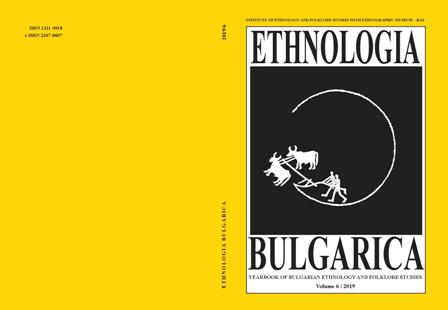Gypsies and the Emigrations of the ‘Bulgarian Turks’ (1948–1989)
Gypsies and the Emigrations of the ‘Bulgarian Turks’ (1948–1989)
Author(s): Plamena StoyanovaSubject(s): Anthropology, Social Sciences, Customs / Folklore, Ethnohistory, Local History / Microhistory, Social history, Islam studies, Cultural Anthropology / Ethnology, Culture and social structure , Nationalism Studies, Pre-WW I & WW I (1900 -1919), Interwar Period (1920 - 1939), Post-War period (1950 - 1989), Migration Studies, Ethnic Minorities Studies
Published by: Институт за етнология и фолклористика с Етнографски музей при БАН
Keywords: Gypsies; socialism; Roma; politics; migration; Turkey
Summary/Abstract: “The Gypsies are our own, domestic problem” is a phrase attributed to the long-term former head of the old communist Bulgarian government, Todor Zhivkov. The government policy towards the Gypsy minority in communist Bulgaria is one of inclusion to the Bulgarian way of life, and its implementation is carefully tailored to the specificities of Bulgaria as a country. It is a little known fact that towards the end of the 40s, the Bulgarian Gypsies suddenly turn from a ‘domestic problem’ to something much larger and thus become part of the great confrontation between the two world political camps divided by the Iron Curtain. This takes place during the migration of the ethnic Turks which starts in 1948, and during which, applications for emigration are filed by both Bulgarian Turks and Muslim Bulgarian Gypsies. This latter ethnic minority becomes the cause for serious conflict between ‘communist Bulgaria’ and ‘capitalist Turkey’. This paper aims at following the events from the end of the 1940s to the end of the 1980s, as well as at analysing the consequences of the confrontation between the two neighbouring Balkan countries.
Journal: ETHNOLOGIA BULGARICA. Yearbook of Bulgarian Ethnology and Folklore
- Issue Year: VI/2019
- Issue No: 1
- Page Range: 20-33
- Page Count: 14
- Language: English
- Content File-PDF

